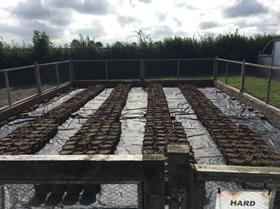
Britain must overhaul its weed management efforts, with crop-saving information getting lost and a lack of knowledge exchange hindering agriculture.
A major cross-sector review commissioned by AHDB and BBRO bemoaned a lack of archives for key reference material making gathering of vital information hard.
Some agricultural knowledge and information is also being lost within “high-science, peer-reviewed journals” according to the report, which called for a “major shake-up” of weed management investment.
The review recommended the creation of coordinated research programmes and greater knowledge exchange (KE) to bolster efforts against weeds and make best use of depleted funds.
The AHDB drew from national and international sources, covering cereals, oilseeds, horticulture, potatoes, sugar beet, legumes and grassland systems.
Joe Martin, AHDB senior crop protection scientist for weeds, said: “The UK has been at the forefront of weed research in the post-war era, laying the foundation for management, including the provision of essential data on weed biology. However, the legacy of this research is being eroded. Key reference sources, such as those published by Defra and its predecessor, MAFF, are gradually being lost.”
He continued: “AHDB has to balance many priorities. Due to the strategic importance of weeds, the green light has been given to develop the next phase of weed research and KE. This will involve working in partnership with industry to develop cross-sector programmes of work.”
Non-chemical control methods also show promise, with the report recommending further trials on this approach. Information on “whole-systems” weed management was also needed, investigating the role that cover crops, minimum cultivation systems, inter-row management and inter-cropping can play.
Martin added: “Chasing management of a specific weed with chemistry is a luxury in current times. The review suggests we should look at ‘broad-spectrum’ alternatives that tackle weeds across entire cropping systems.”
The review also called for new technology to be “fast-tracked”, such as drones, weed maps, and genetic advances to develop herbicide-tolerant crops.



